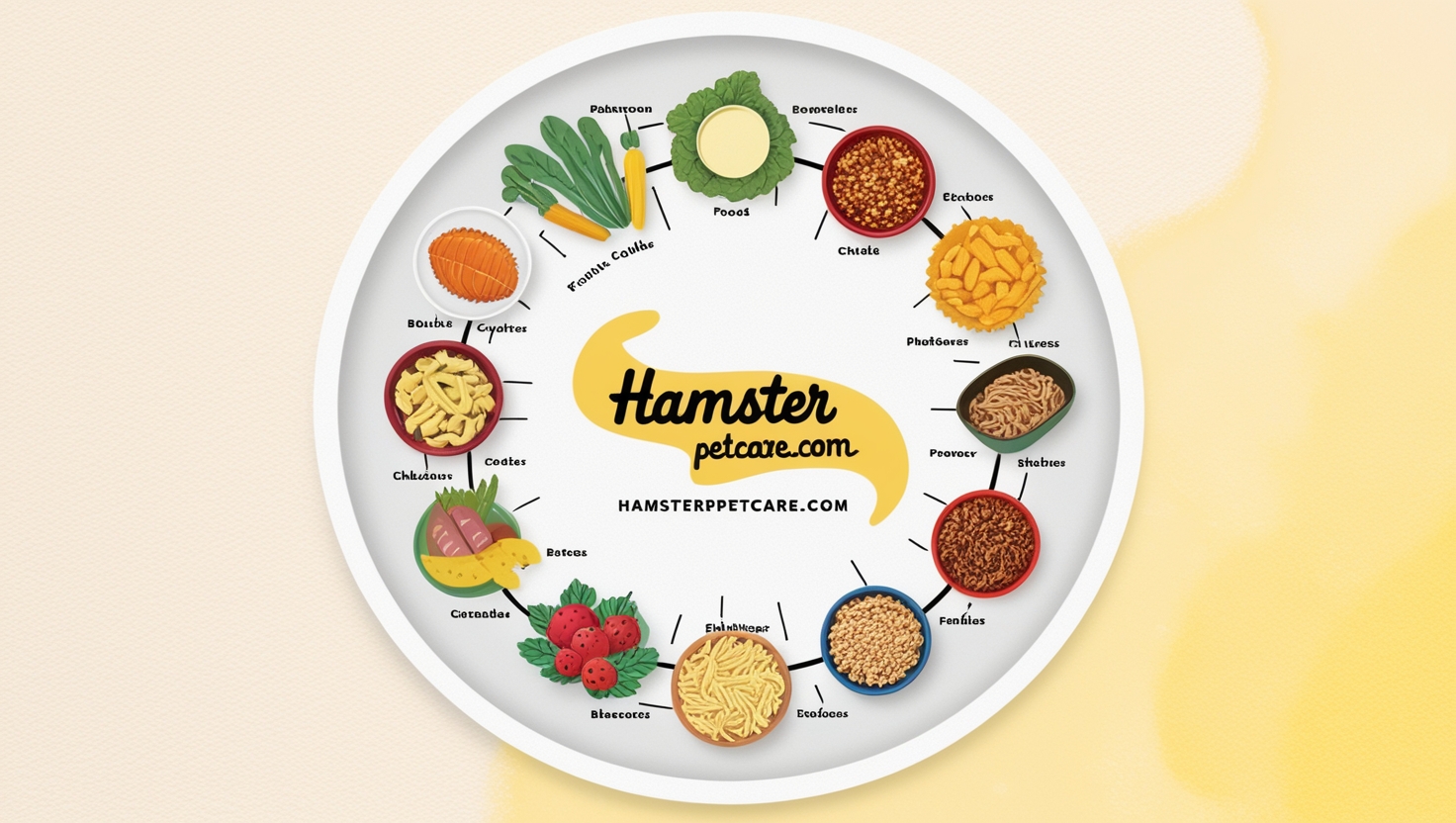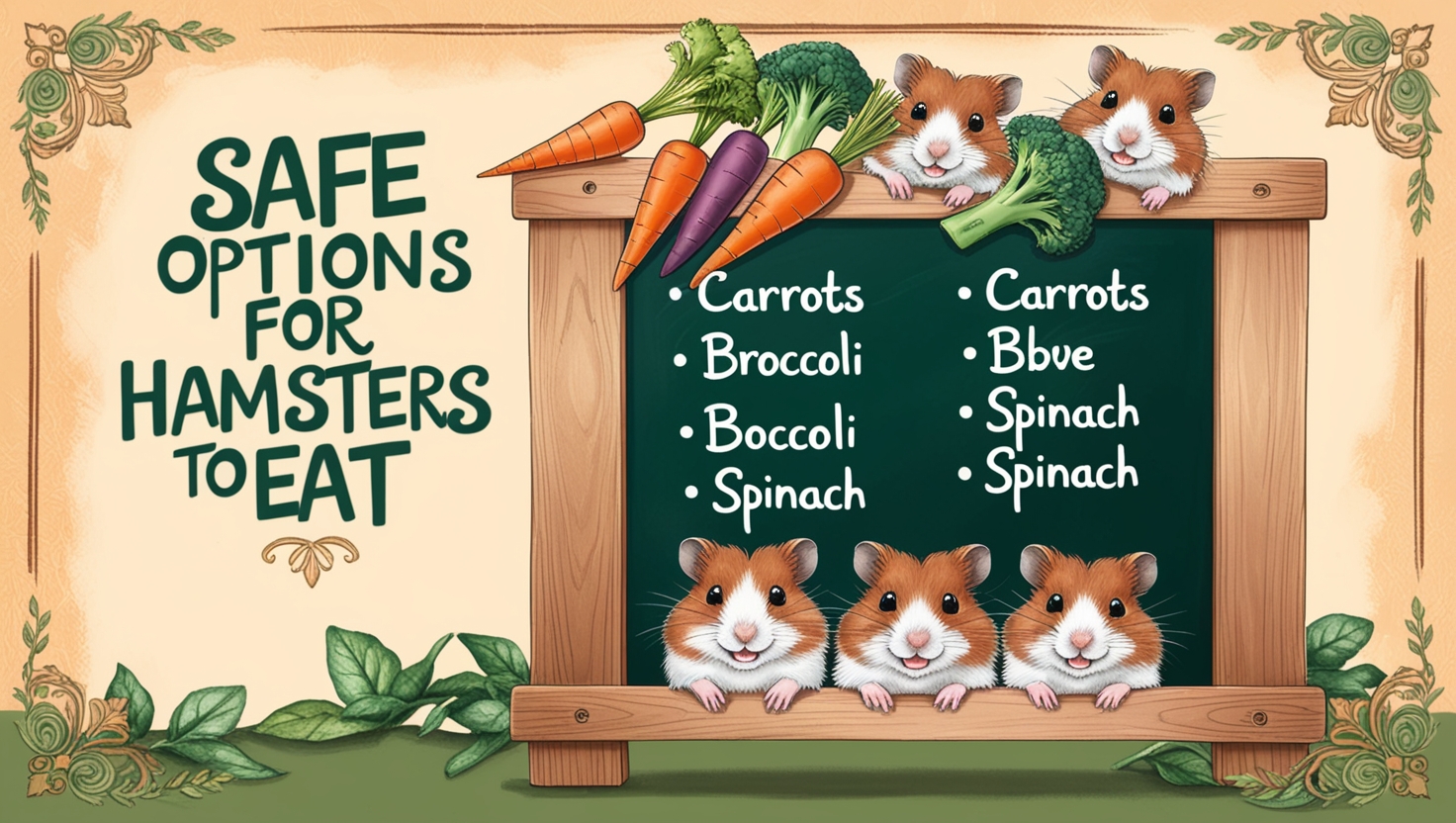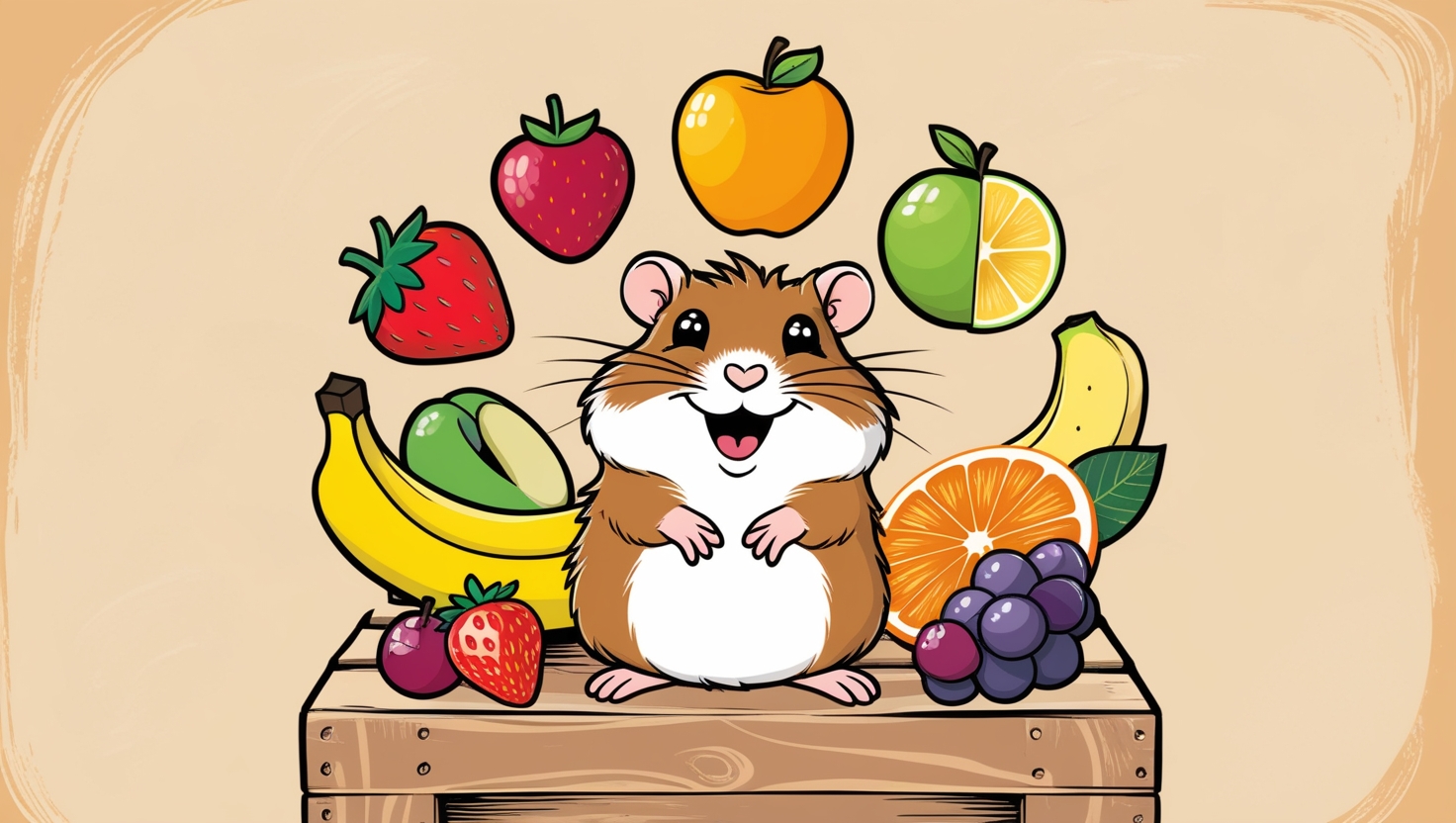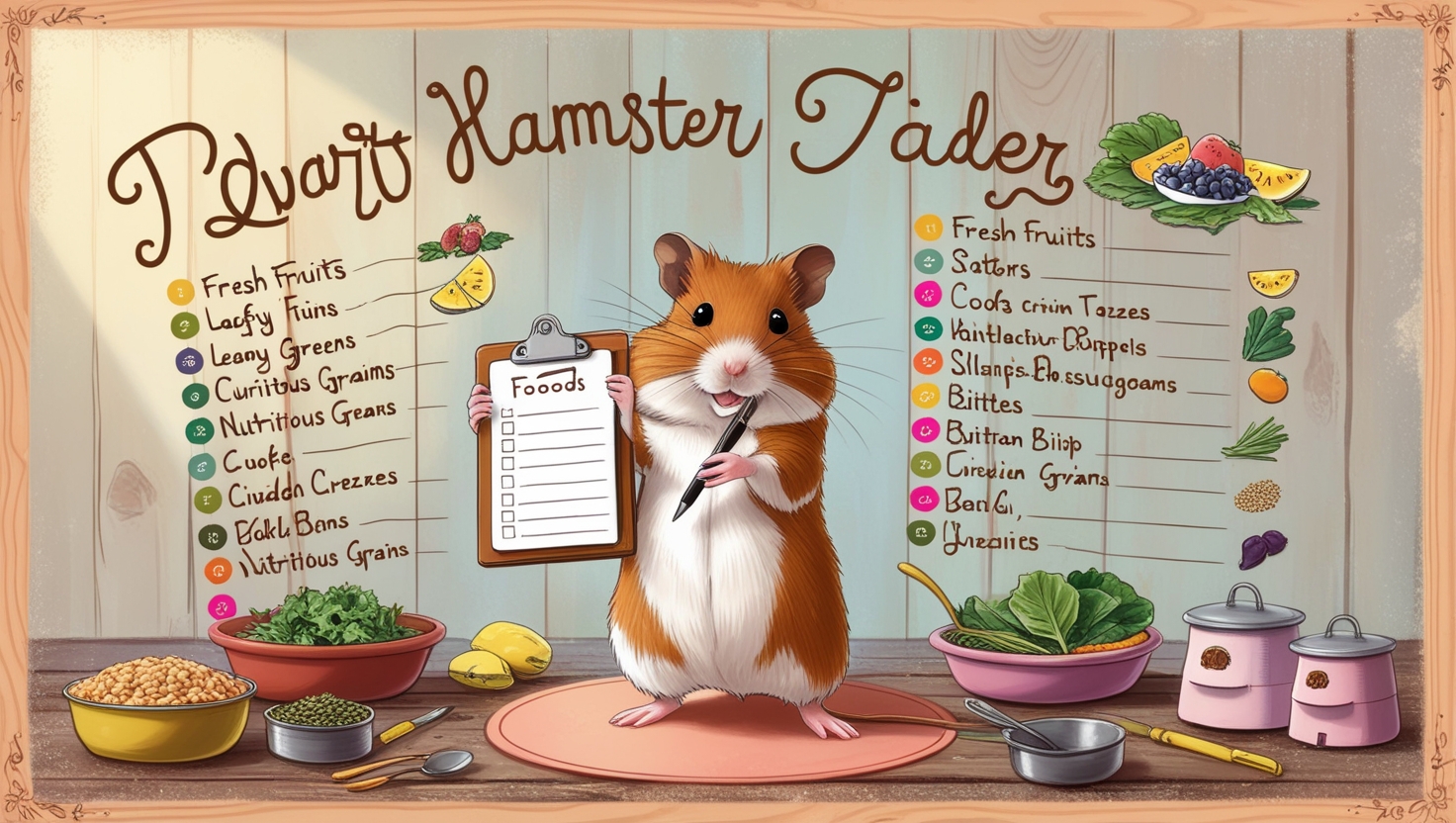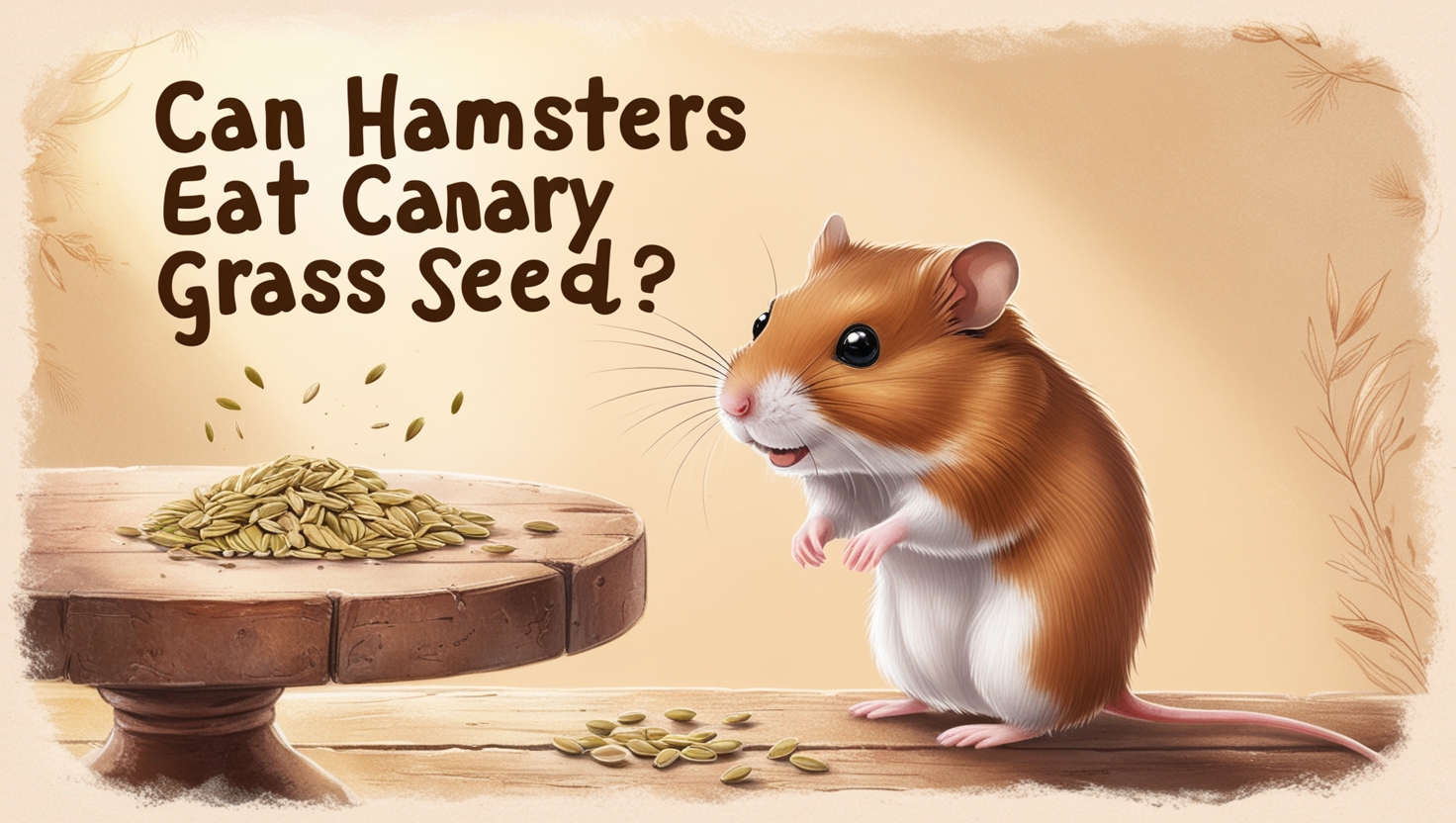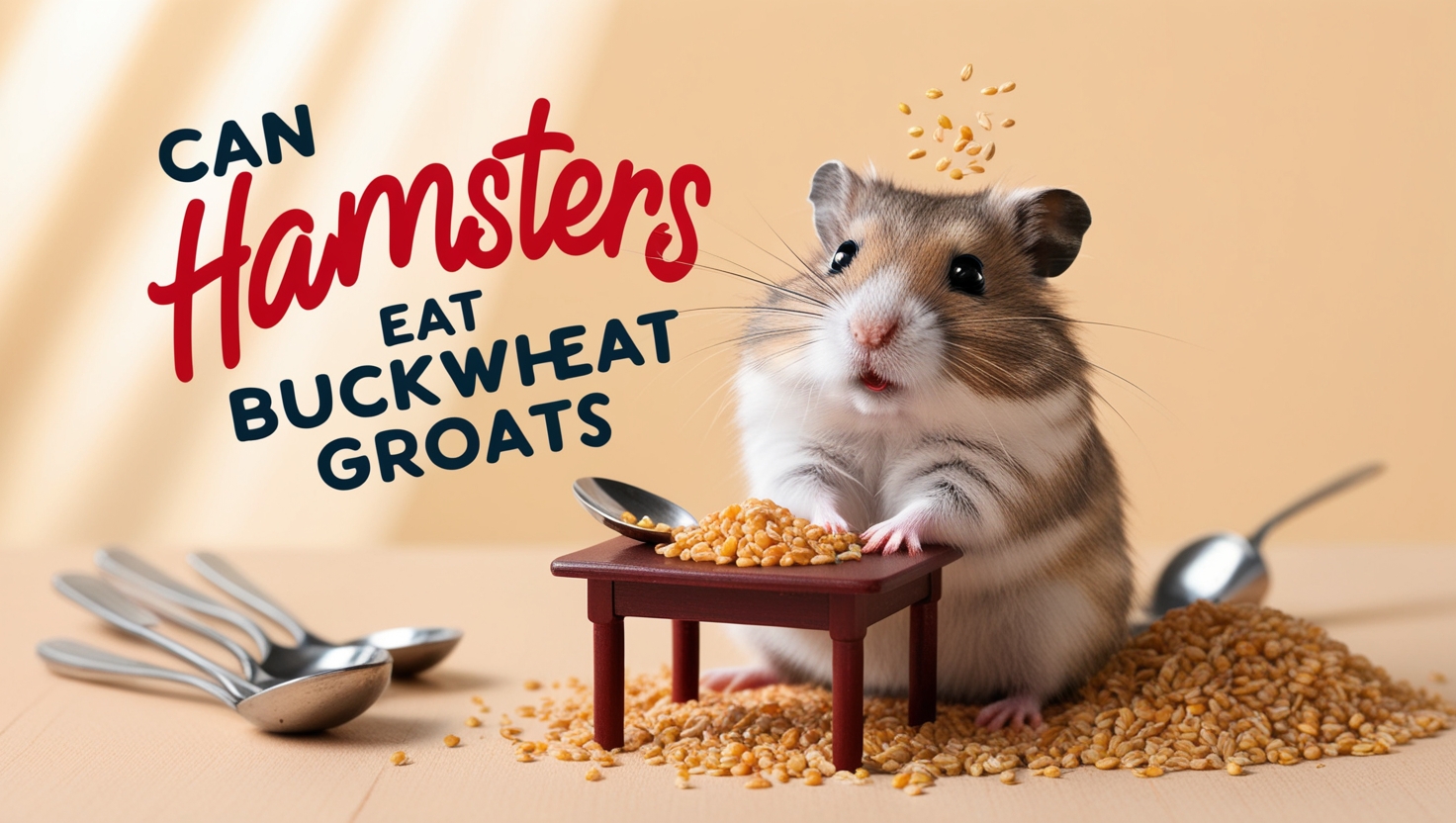Hamsters are beloved little creatures known for their adorable antics and furry charm. As responsible pet owners, it’s crucial to ensure their well-being, and that includes their diet. One common query that arises is, “Can hamsters eat cherries?” In this article, we will explore the world of hamster nutrition, addressing this question and providing valuable insights into the dietary needs of our tiny companions.
Can Hamsters Eat Cherries?
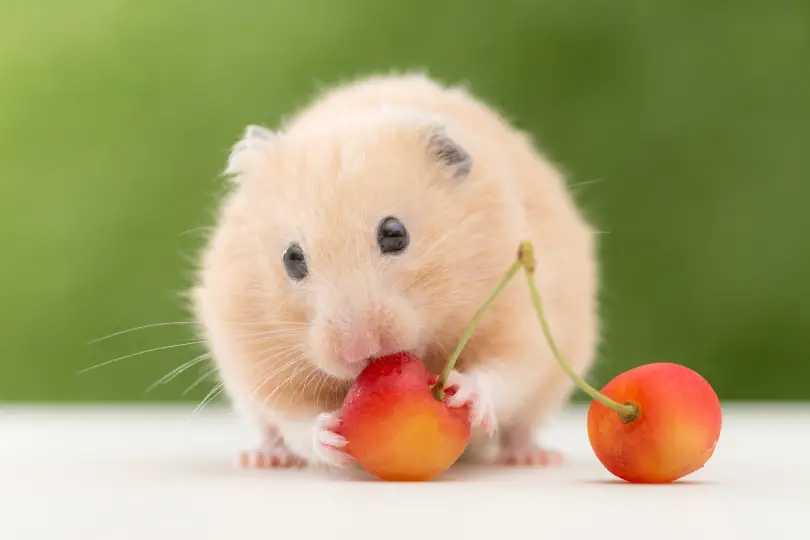
If you wish to have playful and not so demanding pet, hamster could be an ideal choice for you and your family. It is sweet and adorable; it loves to play and cuddle and in the same time does not require special conditions and treatment.
Hamsters are high on the list of the most popular pets around the planet. They are good choice for people who work a lot, but still want have a pet and take a good care of it. Hamsters are easily adapted to new environment and easy to tame.
They are nocturnal animals, so your new little friend would sleep most of the day. Do not disturb its sleep, but let it outside the cage in the evening and spend some time playing with it. Hamsters are dear and lovely, but once they get irritated they could be aggressive and could even bite. Treat it gently and carefully and you will certainly make a good new little friend.
Feeding your hamster
Balanced and healthy nutrition is a half way to your pet’s full satisfaction. Feeding hamsters is not complicated at all; you just need to understand their basic needs.
Hamster needs a balanced mix of grains as a base of their diet plan. Those grains should contain the proper amount of fiber, proteins and fat. You can buy high quality hamster food in any pet store, but you can also mix it yourself.
Commercial or homemade mix should be enriched with several servings of some fresh food a week. Fresh vegetable and fruit is recommended to feed your hamster on every third day. It will prevent constipation and obesity in your pet. Just make sure you always rinse it thoroughly. The best option is to buy organically grown fruit and vegetable in order to reduce the risk of chemical poisoning.
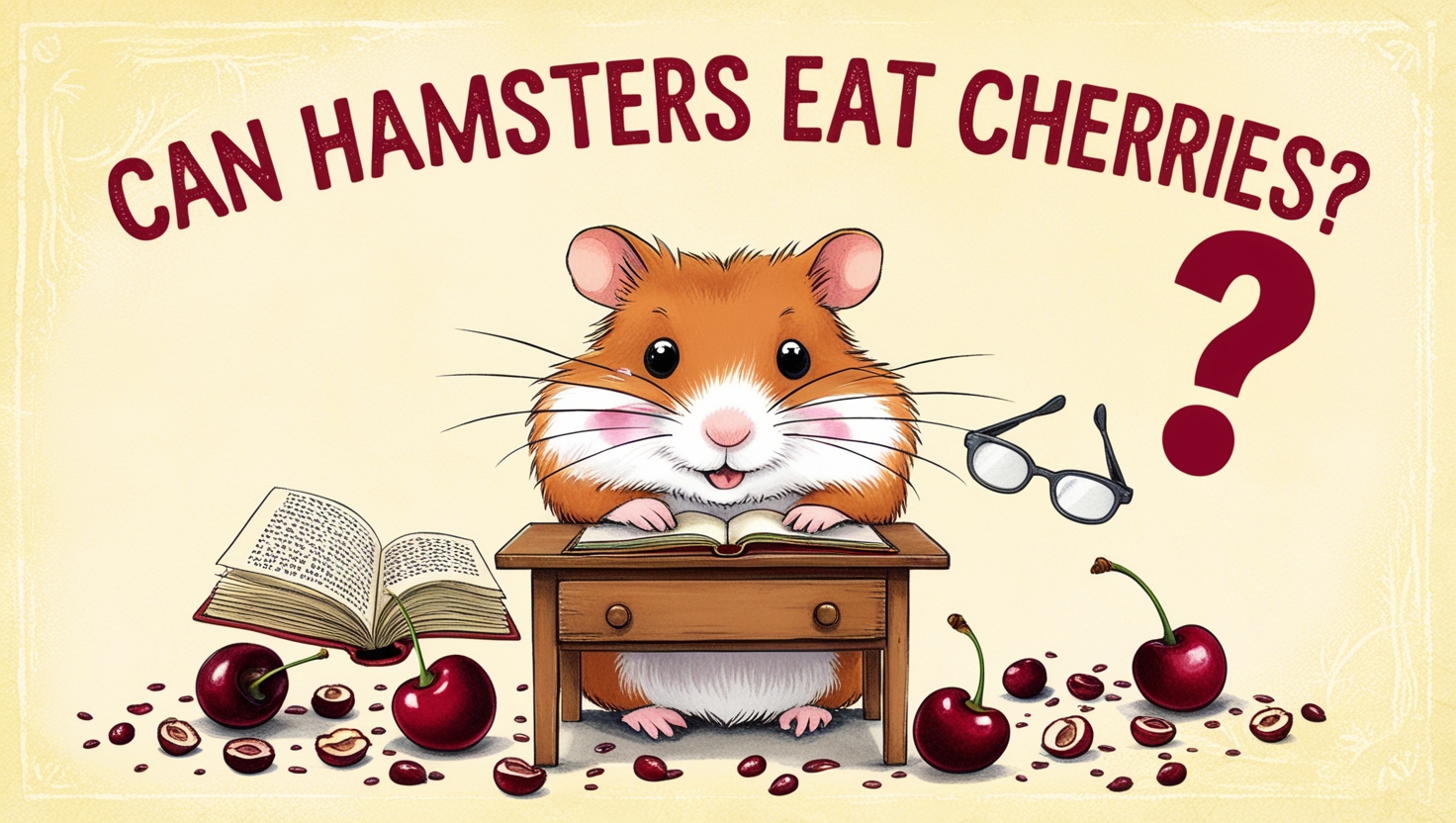
Sweet and juicy cherries for hamsters
Commercial food is the easy part of your pet’s healthy nutrition plan. Fresh fruit should be added as an occasional treat and not in larger amounts. Fruit contains too much sugar for your little friend’s delicate belly, so do not feed it too frequently and keep to very small portions. There is a great variety of raw fruit your pet is allowed to eat. Cherries are one of them, along with raspberries, blackberries, cranberries, strawberries and other dark red fruit.
Can Hamsters Eat Cherries?
Hamsters are omnivorous by nature, which means they can consume a variety of foods. However, when it comes to cherries, caution is advised. While cherries can be a tasty treat for humans, they may not be suitable for hamsters. Cherries contain natural sugars that can be harmful to these small animals if consumed in excess. The high sugar content can lead to digestive issues and obesity in hamsters. It’s best to avoid giving cherries to your furry friend and opt for safer alternatives like fresh vegetables or approved hamster pellets.
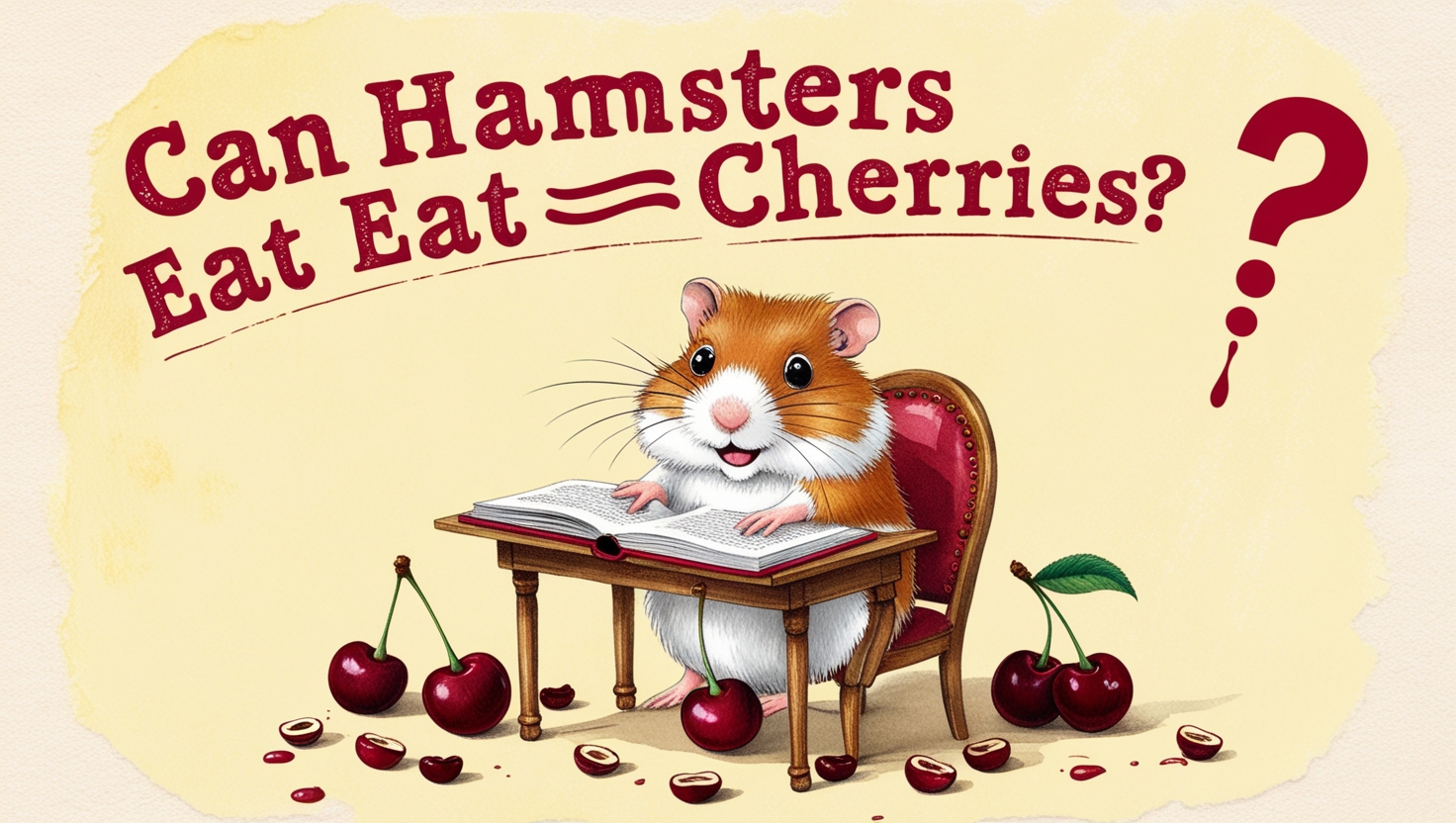
The Importance of a Balanced Diet for Hamsters
Maintaining a well-balanced diet is vital for the health and longevity of your hamster. Here are some key considerations:
1. Nutrient-Rich Hamster Pellets
Start with a solid foundation by providing your hamster with high-quality hamster pellets. These specially formulated pellets are designed to meet your pet’s nutritional needs, ensuring they receive essential vitamins and minerals.
2. Fresh Vegetables
Incorporate fresh vegetables into your hamster’s diet, such as carrots, broccoli, and cucumber. These veggies offer essential nutrients and add variety to their meals.
3. Limited Fruits
While some fruits are safe for hamsters, moderation is key. Fruits like apples and pears can be given as an occasional treat, but remember that they are high in sugar.
4. Hydration
Always ensure your hamster has access to clean, fresh water. Hydration is crucial for their overall well-being.
5. Avoid Toxic Foods
Certain foods are toxic to hamsters and should be avoided at all costs. These include chocolate, citrus fruits, and sugary or salty snacks.
Nutrition in cherries per 100 grams
- Calories: Cherries are relatively low in calories, providing about 50 calories per 100 grams, making them a healthy snack option.
- Carbohydrates: Cherries are a good source of carbohydrates, primarily natural sugars. They contain approximately 12-15 grams of carbohydrates per 100 grams.
- Fiber: Cherries are a decent source of dietary fiber, offering around 2 grams per 100 grams. Fiber is essential for digestive health and can help regulate blood sugar levels.
- Protein: Cherries contain a small amount of protein, approximately 1 gram per 100 grams.
- Fat: Cherries are virtually fat-free, with less than 1 gram of fat per 100 grams.
- Vitamins: Cherries are rich in vitamins, particularly vitamin C, which is an antioxidant that supports the immune system. They also contain small amounts of vitamin A, vitamin K, and various B vitamins.
- Minerals: Cherries provide minerals like potassium, which is crucial for heart health, and a small amount of calcium, magnesium, and phosphorus.
- Antioxidants: Cherries are known for their high antioxidant content, primarily due to compounds like anthocyanins and quercetin. These antioxidants help protect cells from oxidative damage and inflammation.
- Phytonutrients: Cherries also contain phytonutrients such as quercetin and ellagic acid, which have been linked to various health benefits, including anti-inflammatory and anti-cancer properties.
- Hydration: Cherries have a high water content, which contributes to their refreshing and hydrating nature.
It’s worth noting that the nutritional content of cherries can vary slightly depending on the variety and ripeness of the fruit. Cherries can be a healthy addition to your diet when consumed in moderation, providing a range of essential nutrients and antioxidants. However, as mentioned in the article about hamsters, their high sugar content makes them less suitable as a regular treat for certain pets. Always consult with a healthcare professional or veterinarian if you have specific dietary concerns.
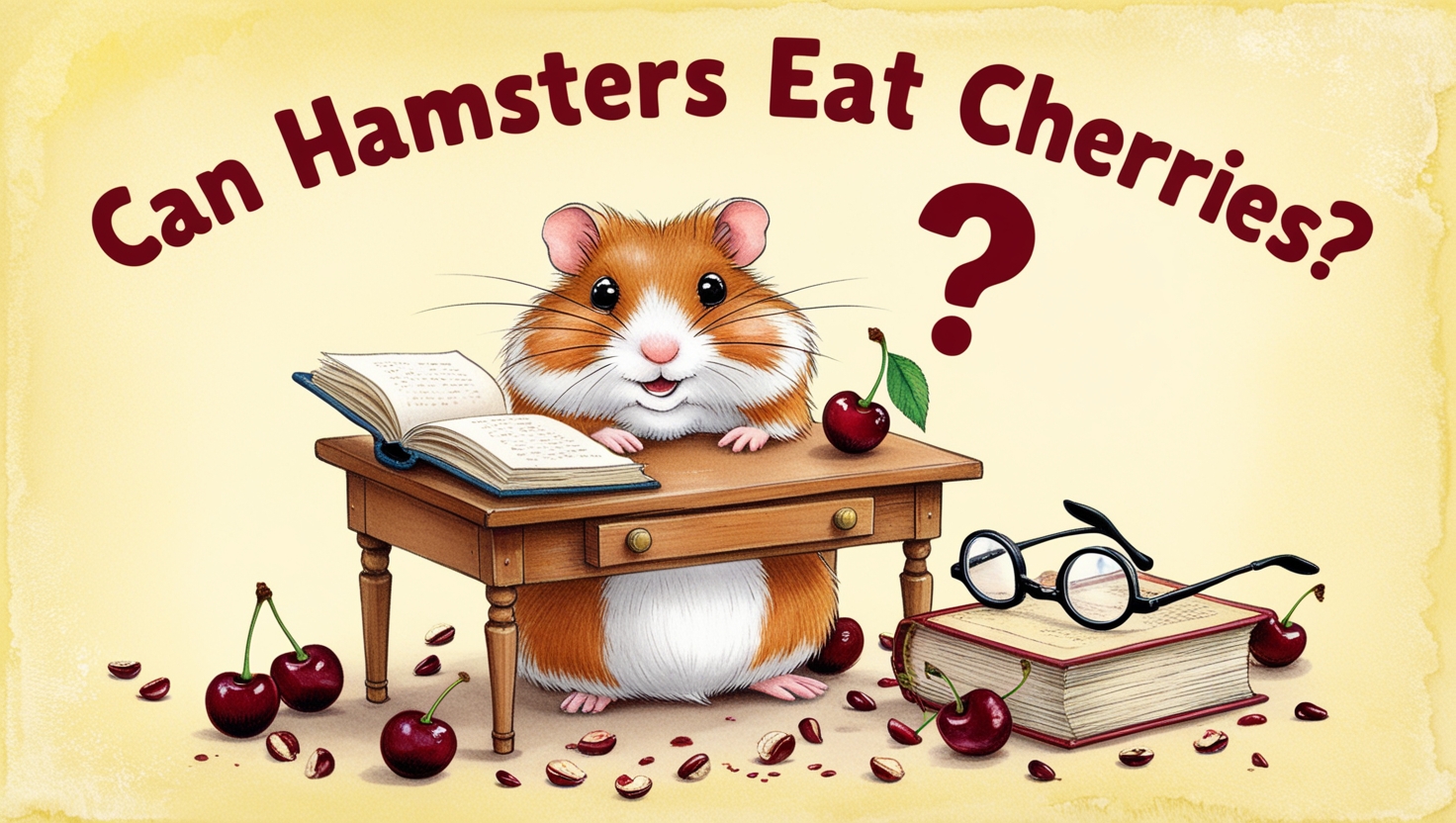
Conclusion
In conclusion, when it comes to the question, “Can hamsters eat cherries?” it’s safer to err on the side of caution and avoid giving cherries to your furry friend. Prioritize a well-balanced diet consisting of hamster pellets, fresh vegetables, and limited fruits to ensure your hamster’s health and happiness. Remember, a healthy diet leads to a happy hamster!
FAQs
Can hamsters eat strawberries?
Yes, in moderation. Strawberries can be a tasty and safe treat for hamsters.
What about grapes?
Grapes should be given sparingly due to their high sugar content. Remove seeds and cut them into small pieces.
Can hamsters eat nuts?
Hamsters can enjoy a small amount of unsalted nuts like almonds or walnuts, but be cautious of portion sizes.
Should I feed my hamster insects?
Yes, hamsters are omnivores and can benefit from the occasional insect like mealworms for added protein.
Is it okay to give my hamster lettuce?
Iceberg lettuce should be avoided, but leafy greens like romaine lettuce are safe for hamsters.
Can hamsters eat cheese?
While hamsters can have a tiny bit of cheese as an occasional treat, it’s best to avoid dairy due to lactose intolerance.


